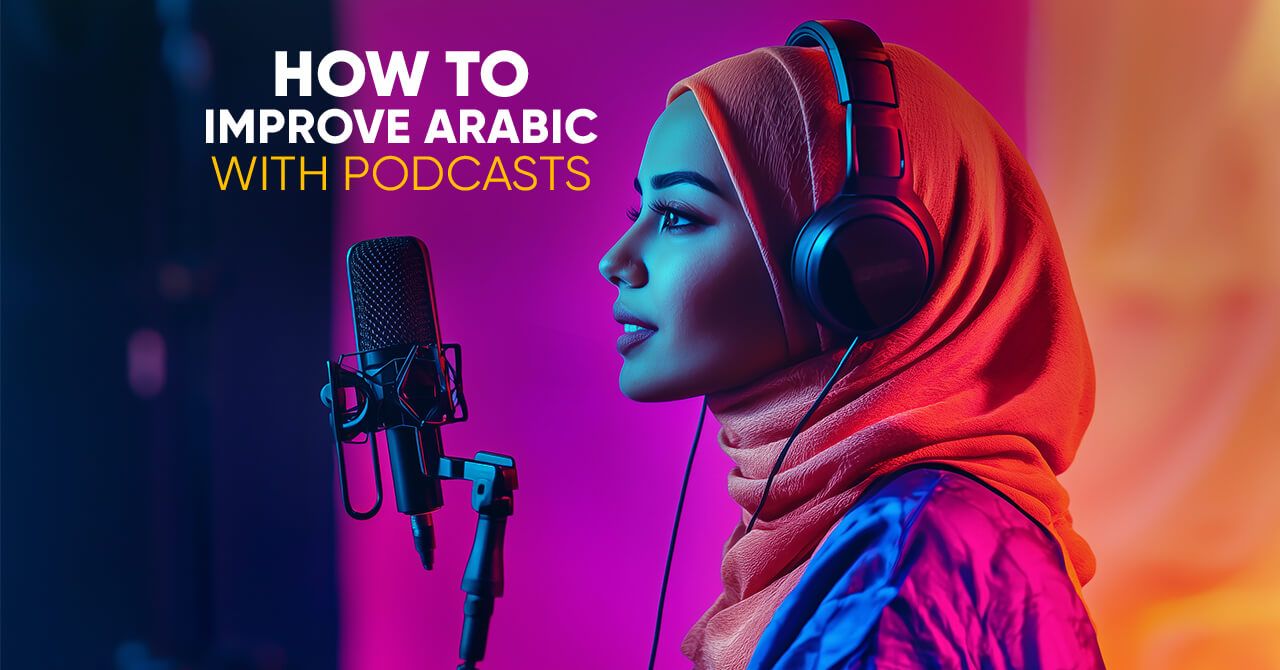How to Enhance Your Arabic Skills Effectively With Podcasts
Keep in mind that it may take you about a week to study and understand a text of around 150 to 200 words. This isn’t a strict rule; progress depends on your dedication and effort. Some people can learn quickly, while others take more time.

Learning a new language: A pathway to new cultures and connections
Learning a new language is a pathway to discovering new cultures and meeting different people. However, the challenge for anyone interested in learning lies in identifying the most suitable approach. This becomes even more complicated when the language we aim to learn is unfamiliar and not taught as a second language in our schools, as is often the case with Arabic.
A personal experience in language learning
Personally, I went through this experience. I found it extremely challenging to learn European languages as a native Arabic speaker. But I discovered a method that allowed me to understand some European languages, such as French, Italian, and English. In this article, I’ll share my personal experience of learning a new language—a method you can apply to any language. Hopefully, it will help many people learn Arabic, which is considered foreign in numerous countries worldwide.
Early struggles with foreign languages
As a native Arabic speaker, I struggled significantly with learning European languages. When I was a student in public schools, my proficiency in these languages was very weak. This led to a decline in my academic performance during those years.
Even when I attended university, I found no opportunity to improve my foreign language skills, as all my studies were conducted in Arabic. After graduating, my knowledge of foreign languages was so limited that I could only write my name.
Discovering podcasts as a learning tool
Despite this, I didn’t lose hope. I continued searching for a way to improve my foreign language skills. Eventually, I met a friend who introduced me to an effective method: learning through podcasts.
I didn’t hesitate to try this method, starting with French podcasts. I was amazed by how much I improved in French after experimenting with this technique. I continued learning this way until I could understand French well and speak it fluently.
Expanding to other languages using podcasts
Next, I moved on to Italian. I searched online for Italian podcasts, and after a few months, I found myself reading and understanding Italian, even though this language isn’t commonly used in my country.
The biggest challenge came next: learning English, the global language of communication. Finding English podcasts wasn’t difficult because the internet is filled with English language resources. By learning English through podcasts, I noticed significant progress—I could understand and speak much more than before.
Learning Arabic through podcasts: who can benefit?
It’s worth noting that this method is unsuitable for complete beginners in Arabic. Instead, it’s designed for those who have already completed an elementary level, are familiar with the Arabic alphabet, and can read and write. After reaching this stage, you can begin using this method.
Tools needed for this method
All you need are two things:
- Short educational podcasts that are both written and audio-based.
- An Android device or iPad with audio player software and Google Translate installed.
Step-by-step guide to learning Arabic with podcasts
- Search online for short Arabic educational podcasts (texts under 150 words) that include written scripts and audio recordings.
- Select a text you want to study and translate it into your native language using online translation tools.
- Print the Arabic text on one side of the paper and its translation on the other.
- Listen to the audio recording multiple times and try to understand the text without looking at the written script.
- Read the translated text in your language to grasp the general meaning.
- Listen to the recording again while following along with the translated text. Match each sentence in the audio with the written text.
- Then, listen to the Arabic recording while reading the Arabic script several times. This will help you recognize many Arabic words and understand their meanings.
- Focus on individual sentences. Listen to each sentence multiple times without looking at the written script.
- Repeat what you’ve heard. You may stumble at first, but your pronunciation will improve with practice.
- Use Google Translate’s microphone feature to record yourself saying the sentence. The app will transcribe what you say into Arabic. Compare this transcription to the original script to check for accuracy. Repeat the process until your pronunciation is correct.
- This practice will solidify your understanding of the words, their spelling, and correct pronunciation. Repeat the same steps for all sentences in the chosen text.
Tips for success
After completing this process, listen to the entire text again. You’ll notice that you understand everything. Then, you can select a new text and begin the process again.
This is all there is to it. It’s a proven, effective method for mastering Arabic—or any other language you want to learn. To succeed, you need patience and a daily time commitment, ranging from 15 to 30 minutes.
Conclusion: the path to fluency
Keep in mind that it may take you about a week to study and understand a text of around 150 to 200 words. This isn’t a strict rule; progress depends on your dedication and effort. Some people can learn quickly, while others take more time.
In conclusion, I hope you’ll try this method and benefit from it as much as I did. It’s not a fictional approach but a tested and reliable one. Learning a new language isn’t difficult—it simply requires desire, patience, and consistency. Remember, anyone who stays on the path will eventually reach their goal.Arabic

Abdel Jabbar, a teacher with a PhD in teaching Arabic to non-native speakers, holds a Bachelor's in Islamic Studies and shares educational content via podcasts and YouTube.



